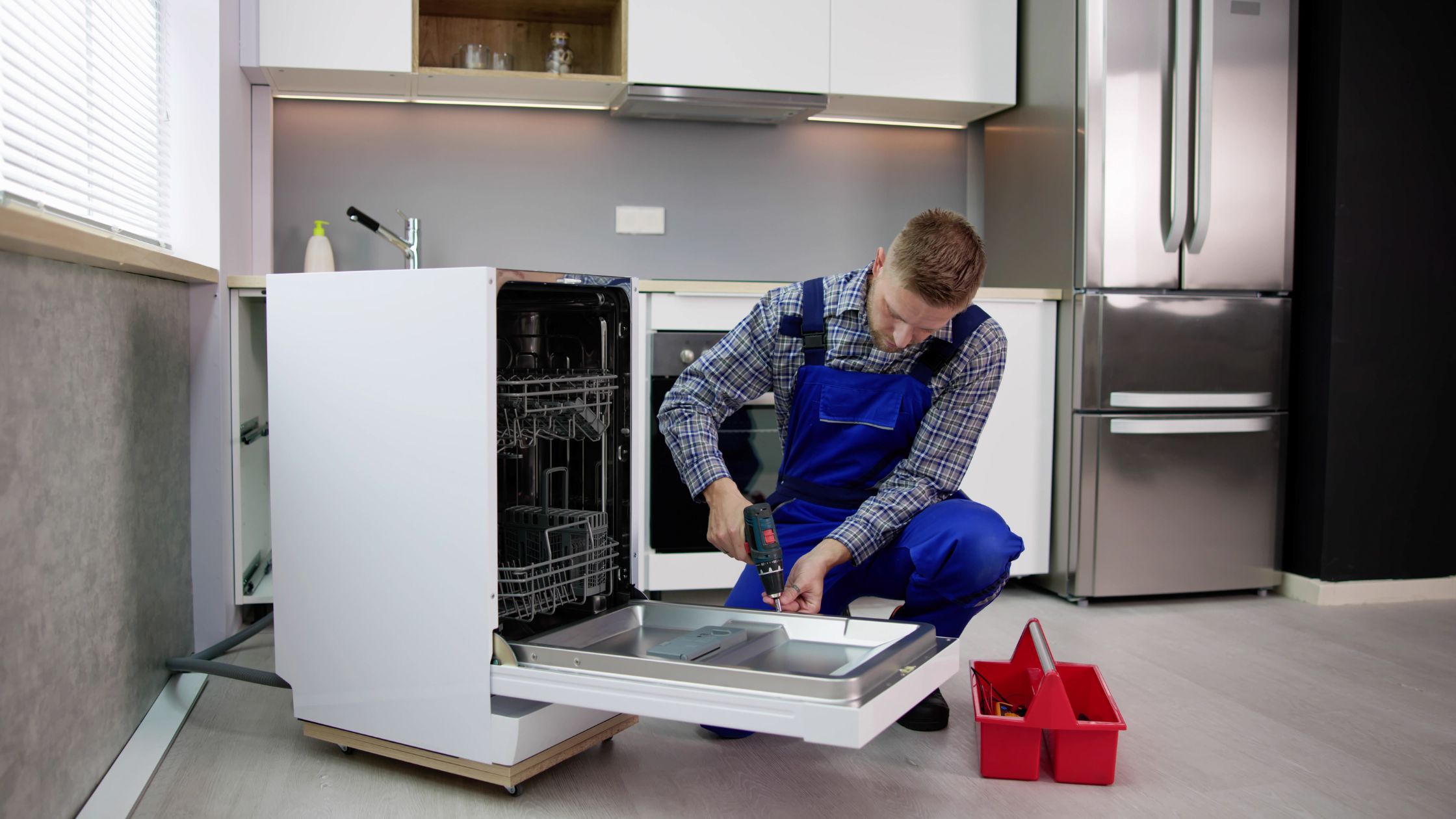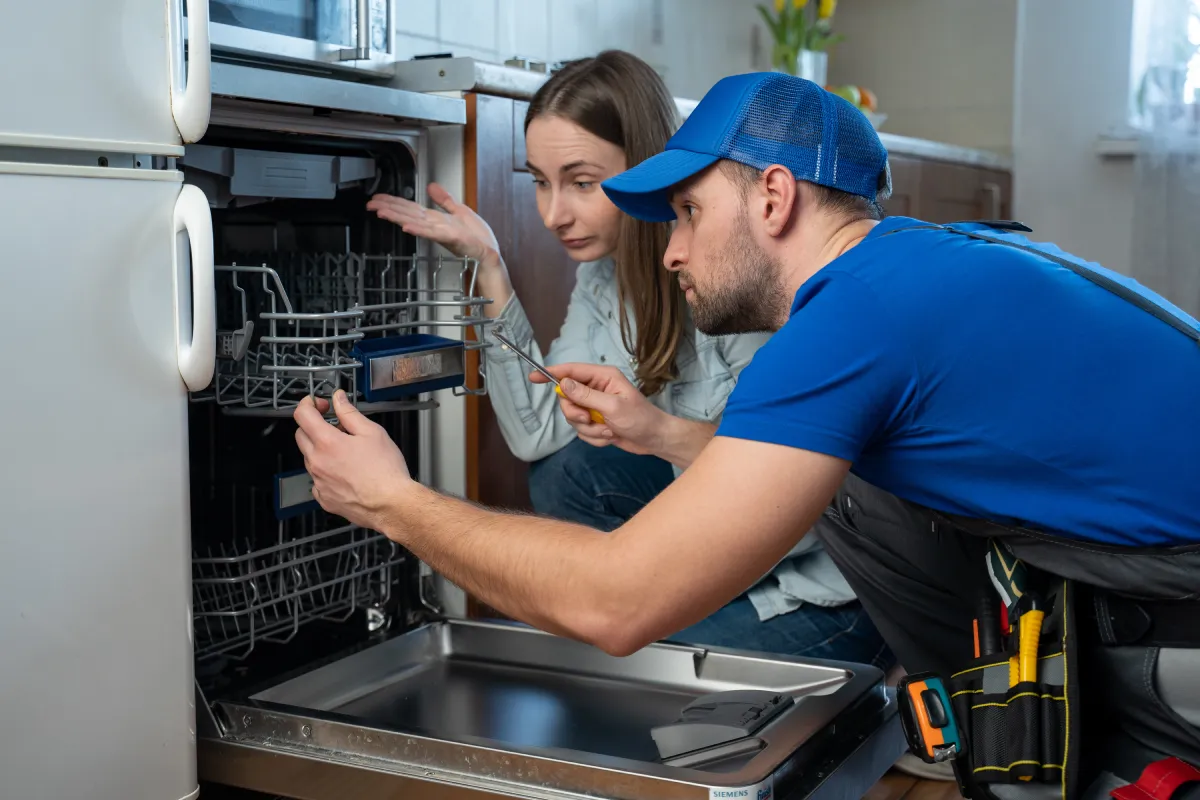OEM vs. Aftermarket – Dependable Refrigeration & Appliance Repair Service Washing Machine Repair
OEM vs. Aftermarket – Dependable Refrigeration & Appliance Repair Service Washing Machine Repair
Blog Article
The Ultimate Guide to Comprehending Home Appliance Repair Work at Home
When your refrigerator quits cooling or your oven declines to warmth, it can really feel frustrating. Comprehending appliance repair work in your home can save you money and time. You'll discover to acknowledge symptoms, use important tools, and adhere to a systematic troubleshooting procedure. Prior to you start, there are vital safety preventative measures you require to take right into account. What are one of the most typical issues, and how can you fix them? Let's discover the essentials.
Common Device Troubles and Their Symptoms
When your devices begin acting up, it's important to identify the indicators early. Ignoring them can result in bigger issues and pricey repairs. If your refrigerator isn't cooling down effectively, you could see warm areas or condensation forming. This might indicate a falling short compressor or a blocked vent.Your dishwasher might show problems via unclean dishes or unusual sounds throughout cycles. If you listen to grinding or clanking, it's time to investigate.A washing equipment that will not spin or drain pipes can leave you with soaked laundry, suggesting a clogged up drainpipe or a malfunctioning pump.Lastly, if your oven's temperature level appears off or it takes permanently to preheat, you could be taking care of a malfunctioning thermostat. By staying sharp to these symptoms, you can deal with concerns before they intensify into major repairs.
Crucial Tools for Device Repair Work
When you're taking on home appliance repairs in the house, having the right tools is necessary. Basic hand devices like screwdrivers and pliers will certainly assist you dismantle and fix various devices, while electric screening tools assure you're working securely with wiring. Allow's go over what you need to begin on your repair trip.
Basic Hand Devices
Having the right tools is necessary for reliable device repair service at home. Beginning with a dependable screwdriver collection, including both flathead and Phillips types, as screws are typical in home appliance setting up. Pliers are likewise essential; they aid with gripping, turning, and cutting wires or little components. A set of needle-nose pliers can reach tight places conveniently. You'll require a great adjustable wrench for tightening or loosening up nuts and screws. An utility knife is useful for puncturing product packaging or insulation. Ultimately, don't fail to remember a sturdy workbench or surface to securely organize your tools and parts. With these basic hand devices, you'll be well-prepared to tackle most appliance repairs that come your method.
Electric Screening Tools
Together with fundamental hand devices, electrical testing devices play an essential duty in home appliance repair work. These tools aid you detect electric concerns and warranty devices function securely. A multimeter is important; it measures voltage, current, and resistance, permitting you to pinpoint problems rapidly. A non-contact voltage tester is an additional essential, allowing you spot live wires without making direct contact, boosting your safety and security. Secure meters are excellent for determining current flow in cables without disconnecting them, conserving you effort and time. In addition, circuit testers can swiftly check if electrical outlets are operating correctly. By utilizing these gadgets, you'll enhance your troubleshooting process and enhance your repair work skills, making device maintenance a great deal less complicated.
Step-by-Step Overview to Diagnosing Device Issues
When your home appliance acts up, it can be discouraging, but detecting the issue does not need to be frustrating. You'll learn to determine usual troubles and apply effective fixing strategies. Allow's go through the steps to obtain your home appliance back in functioning order.
Usual Appliance Troubles

Fixing Techniques Described

Fixing Significant Kitchen Appliances: A Closer Look
Have you ever asked yourself exactly how to tackle typical issues with your cooking area appliances? Repairing major cooking area devices like fridges, stoves, and dishwashers can be simpler site here than you believe. Begin by identifying the trouble-- whether it's a fridge not cooling down or a stove that will not heat up. Often, a simple reset or examining the power source can address the issue.For refrigerators, tidy the condenser coils and examine the door seals. If your stove's not home heating, evaluate the heating element and thermostat. Dishwashers might simply need a clean filter or a reset to obtain them back in activity. Always disconnect the home appliance before diving into repair work to guarantee your safety.Don' t neglect to speak with the customer handbook for details fixing tips connected to your version. With a little bit of patience and the right tools, you can confidently tackle home appliance repair work and conserve money in the procedure!

Fixing Washing Devices: Tips and Techniques
When your laundry devices start acting up, it can really feel frustrating, however troubleshooting them does not need to be a hassle. Start by checking the power supply. Confirm the appliance is plugged in and the outlet is operating. Next off, inspect the door or lid switch; a faulty switch can prevent the device from operating.For washing machines, if it's not spinning, look for unbalanced tons. Rearranging the clothes may fix the issue. If your clothes dryer isn't heating, clean the dust filter and check the air vent for blockages.Listen for unusual noises; they can indicate a trouble. If your home appliance is dripping, inspect the pipes for fractures or loosened links. File any type of mistake codes displayed on electronic displays, as they can assist you in recognizing the concern. Get in touch with the individual manual for certain fixing tips related to your model.
Safety Preventative Measures to Take Throughout Fixes
Before you start any type of appliance fixings, it's vital to focus on safety and security to stop mishaps or injuries. Initially, disconnect the device or switch off the breaker to guarantee no power reaches it while you function. Usage shielded tools to minimize the risk of electric shock. Wear safety goggles and handwear covers to safeguard on your own from sharp sides or debris (Washer dryer repair service Dependable Refrigeration).Make specific your work space is neat and well-lit, so you can see what look here you're doing. Keep youngsters and animals away from the location to stay clear of disturbances and possible risks. If you're managing gas appliances, be added cautious; look for leaks prior to proceeding.Take your time, and don't hurry through repairs. If you feel unclear regarding any kind of step, it's much better to pause and research study than to presume. Complying with these precautions will aid create a much safer environment for your DIY device repair job
When to Call a Professional for Assistance
Just how do you know if it's time to call an expert for home appliance repairs? If you've tried basic troubleshooting without success, it's a clear indication. If your home appliance still will not start or reveals unusual sounds after resetting it, do not hesitate to seek professional help.When you see leakages, smoke, or burning smells, focus on security and call a pro promptly. These concerns can bring about more considerable damage or pose risks to your home.Also, if your home appliance is under warranty, speaking to a specialist is often the finest path. They can guarantee that repairs will not invalidate your guarantee, conserving you money in the long run.Finally, if you're unsure or uneasy with complex repair work, it's smart to leave it to the experts. Bear in mind, tackling challenging problems without the ideal competence can lead to costly blunders. Trust fund an gas stove repair expert when doubtful!
Regularly Asked Questions
Exactly How Can I Avoid Device Problems in the Future?
To avoid device problems in the future, you ought to perform routine upkeep, check for deterioration, tidy filters, and avoid overloading. Staying proactive will certainly aid prolong their life expectancy and keep them running smoothly.
What Are the Many Typical DIY Appliance Repair Work Mistakes?
You may overlook safety and security precautions, skip fixing actions, or utilize wrong tools when attempting do it yourself home appliance repair services. Hurrying the process or disregarding producer standards can bring about even more considerable concerns and pricey blunders. Remain client and notified!
How Do I Know if a Part Demands Substitute?
You can tell if a part requires substitute by looking for uncommon noises, leakages, or irregular performance. If the home appliance has a hard time to operate properly or reveals visible damage, it's most likely time for a substitute.
Can I Utilize Generic Components for Device Services?
Yes, you can use generic components for home appliance repairs, however determine they work - Fixes washers and dryers Oro valley Dependable Appliance Repair. Common parts could save you cash, yet they might influence performance or durability, so evaluate your choices thoroughly prior to deciding
What Service Warranties Cover Appliance Repair Works?
The majority of home appliance warranties cover fixings for producing defects, but they usually exclude damages from misuse. Inspect your guarantee terms carefully, as some might call for making use of qualified specialists and original parts for coverage to remain legitimate.
Report this page